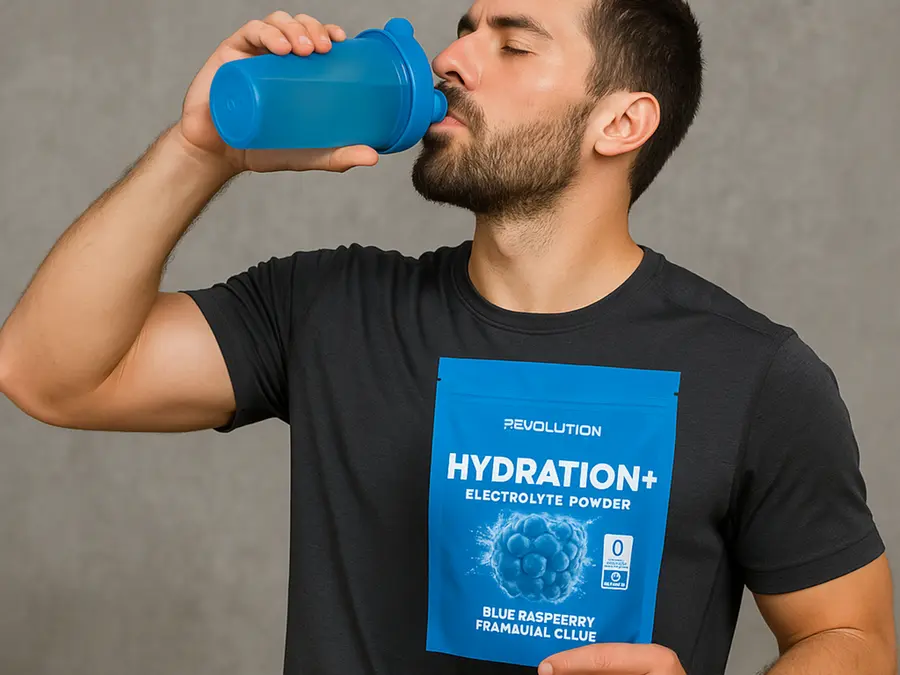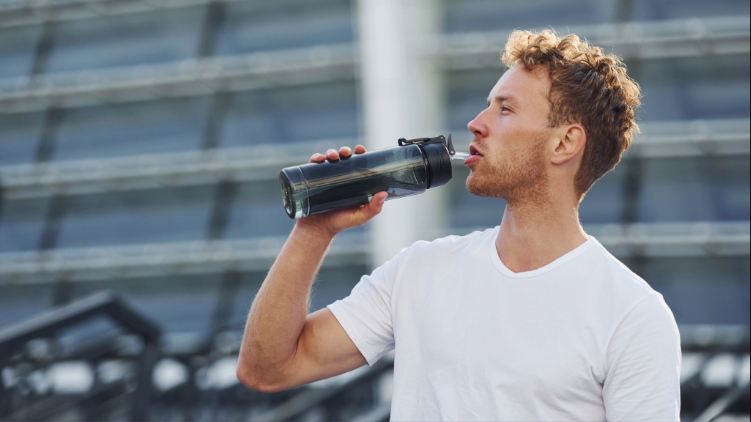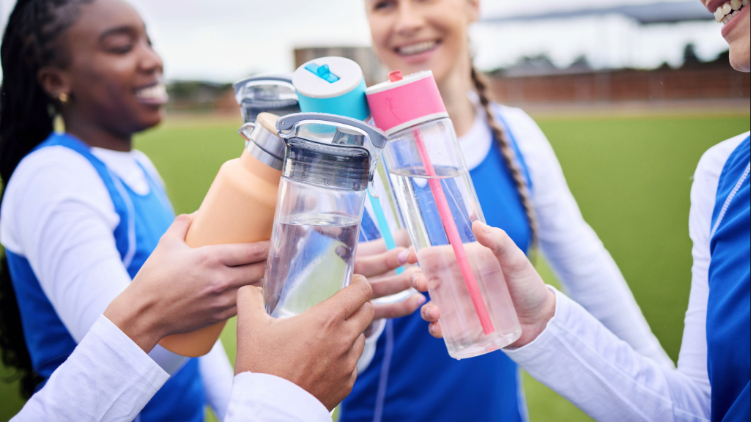Welcome



If you’re chasing peak performance and proper hydration, electrolytes are the hidden key. Overlook them, and you’re sabotaging your body’s balance before you even begin. Whether you're an athlete pushing through intense workouts or simply navigating daily life, understanding how to leverage electrolytes can elevate your hydration game. This comprehensive guide will delve into the science of electrolytes, shedding light on their crucial role in regulating bodily functions, preventing dehydration, and enhancing endurance.
From sodium and potassium to magnesium and calcium, each electrolyte contributes to a finely tuned system that supports everything from muscle contraction to nerve function. Join us as we unlock the power of electrolytes, offering practical tips and insights that can transform your hydration strategies and overall performance. Embrace the journey towards better health and vitality—your body will thank you for it.

Electrolytes are charged minerals that keep your body functioning properly, powering nerve signals, facilitating muscle movement, maintaining hydration, and regulating pH balance. Think sodium, potassium, calcium, magnesium, chloride, bicarbonate, and phosphate. They dissolve in your body's fluids and drive the signals that keep everything working. Miss out on them, and you're risking cramps, fatigue, poor focus, and an overall energy crash your body can't afford.
Sodium and potassium, for example, are crucial for maintaining fluid balance and blood pressure. They work together to ensure that your body's cells are adequately hydrated and functioning correctly. Sodium helps regulate water levels in the body, while potassium is vital for heart function and muscle contractions. Calcium and magnesium, on the other hand, are key players in muscle function and bone health. Calcium is essential for muscle contractions, while magnesium facilitates muscle relaxation.
Electrolytes are obtained through the food and fluids you consume. A balanced diet typically provides all the necessary electrolytes your body needs. However, during periods of intense physical activity or illness, you might lose more electrolytes through sweat, urine, or other bodily fluids. Managing electrolytes isn’t optional; it's the key to maintaining your health and optimal performance. Ignore it, and you risk draining your energy, weakening your focus, and holding your body back from its full potential.
Hydration is crucial for the body's optimal functioning. Water drives nearly every function in your body, from maintaining your body temperature to transporting nutrients and eliminating waste. When you are adequately hydrated, your body can function efficiently, leading to improved physical and mental performance.
But the moment you start sweating during exercise, you’re draining that supply. Fail to replace it, and dehydration sets in, dragging down your performance. Dehydration can cause symptoms such as fatigue, dizziness, and muscle cramps, all of which can hinder your ability to sustain physical activity. Let it go too far, and you’re facing dangerous risks like heat stroke. And it’s not just your body, your mind takes a hit too.
Even slight dehydration can impair your focus, reaction time, and memory, leaving you at a disadvantage when you can't afford to be. For athletes and active individuals, maintaining optimal hydration is crucial not only for physical performance but also for strategic thinking and decision-making. Therefore, understanding the role of hydration and how to maintain it is crucial for anyone seeking to improve their performance.

Electrolytes play a pivotal role in physical performance by ensuring that muscles and nerves function properly. During physical activity, electrolytes help regulate fluid balance, a crucial process for maintaining endurance and preventing muscle cramps. Sodium and potassium, in particular, are vital for muscle function and preventing fatigue.
When you exercise, your muscles contract and generate heat. Electrolytes help your body manage this heat by facilitating sweat production, which cools you down. If your electrolyte levels are too low, your body's ability to regulate its temperature is compromised, which can lead to overheating and decreased performance. Additionally, electrolytes help prevent muscle cramps by ensuring that your muscles contract and relax efficiently.
Furthermore, electrolytes play a crucial role in the production of energy. Magnesium, for example, is a cofactor in more than 300 enzymatic reactions, including those involved in ATP production, the energy currency of cells. Without sufficient magnesium, your body cannot produce the energy needed for prolonged physical activity. Therefore, maintaining adequate electrolyte levels is crucial for sustaining optimal performance.
Electrolyte imbalances can manifest in various ways, depending on which electrolyte is affected. Common signs of an imbalance include muscle cramps, fatigue, headaches, and irregular heartbeats. These symptoms occur because electrolytes are essential for muscle and nerve function. When their levels are too high or too low, it disrupts these processes. Hyponatremia, or low sodium levels, is a common imbalance that can occur during prolonged physical activity, especially in hot conditions. Both conditions require prompt attention to restore balance.
Hypokalemia, or low potassium levels, can cause muscle weakness, cramping, and arrhythmias. Conversely, hyperkalemia, or high potassium levels, can be equally dangerous, leading to heart palpitations and even cardiac arrest. Calcium and magnesium imbalances also present risks, affecting muscle function, bone health, and overall energy levels. Recognizing these signs and addressing them promptly is crucial for maintaining optimal health and performance.
Electrolyte supplements can be a game-changer, especially if you’re training hard or pushing through intense activity. Skip them, and you risk fatigue, cramping, and performance dips that could’ve been avoided. These supplements typically contain a balanced mix of sodium, potassium, calcium, and magnesium, designed to replace the electrolytes lost through sweat. However, whether you need them depends on your activity level, diet, and individual physiology.
For most people, a balanced diet provides all the necessary electrolytes. However, during prolonged exercise or exposure to extreme heat, the body can lose significant amounts of electrolytes, making supplementation a useful measure. Athletes, in particular, may benefit from electrolyte drinks or powders to quickly restore balance and maintain performance. It's essential to choose supplements that are free from excessive sugars and artificial ingredients.
Before consuming electrolytes, consult a doctor to determine the appropriate dosage, taking into account factors such as activity level, diet, and any underlying health conditions. Rely too heavily on supplements without guidance, and you’re gambling with your health. The wrong mix can throw your body out of balance, and instead of boosting your wellness, you could be creating problems you’ll wish you’d avoided. Therefore, while supplements can be helpful, they should be used thoughtfully and in conjunction with a balanced diet.

Hydration can make or break your workout. Go in under-hydrated, and you’re already at a disadvantage. To set yourself up for peak performance, drink 16–20 ounces of water about two to three hours before you start. This gives your body time to absorb and distribute fluids so you hit the ground ready, not running on empty.
During exercise, the goal is to replace the fluids lost through sweat. Drinking small amounts of water at regular intervals—about 7-10 ounces every 10-20 minutes—helps maintain hydration levels. For intense or prolonged workouts, consider beverages that contain electrolytes to replenish the nutrients you lose through sweat. This is particularly important in hot or humid conditions where fluid loss is more significant.
Post-exercise hydration is just as important as pre- and during-exercise hydration. After your workout, replacing lost fluids isn’t optional; it's essential for recovery. For every pound you sweat out, you should be drinking 16–24 ounces of water. Skip it, and you risk dehydration slowing you down. Add electrolytes to the mix, and you'll replenish the minerals your body desperately needs to stay balanced and perform at its best. By following these best practices, you can ensure optimal hydration and performance.
Achieving optimal hydration and performance is a multifaceted process that involves understanding the role of electrolytes, recognizing the signs of imbalance, and tailoring your intake to meet your specific needs. Electrolytes regulate your fluid balance, muscle function, and overall health, and without them, your body suffers the consequences. By incorporating natural sources of electrolytes into your diet and using supplements judiciously, you can support your body's needs during physical activity.
Hydration isn't the same for everyone; it requires a personalized approach, especially for active individuals. Nail your hydration routine before, during, and after exercise to avoid dehydration, which can steal your energy, focus, and performance. Dispelling common myths about electrolytes and hydration further empowers you to make informed decisions that benefit your health.
Ultimately, understanding and leveraging the power of electrolytes can transform your hydration strategy and overall performance. Whether you're an elite athlete or simply looking to improve your daily hydration habits, recognizing the importance of electrolytes and implementing practical tips can lead to better health and vitality. Embrace the journey towards optimal hydration—your body will thank you for it.